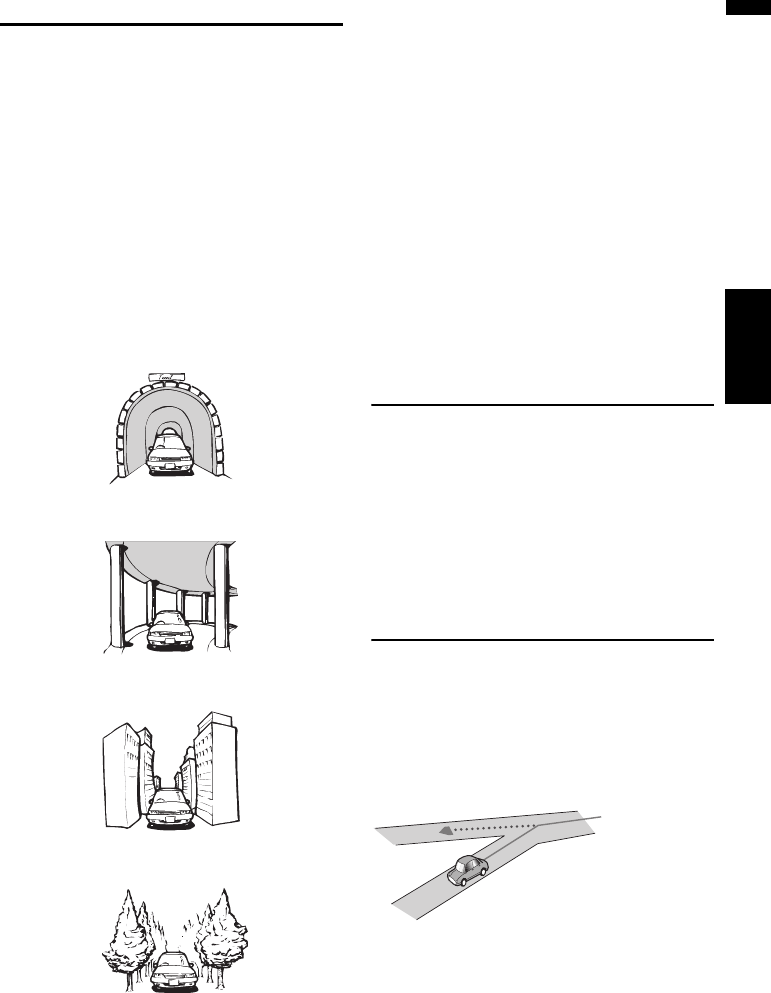
181
AppendixNAVI/AV
Handling Large Errors
Positioning errors are kept to a minimum by com-
bining GPS, Dead Reckoning, and map match-
ing. However, in some situations, these functions
may not work properly, and the error may become
bigger.
When the positioning by GPS is
impossible
• If signals cannot be received from more than
two GPS satellites, GPS positioning does not
take place.
• In some driving conditions, signals from GPS
satellites may not reach your vehicle. In this
case, it is impossible for the system to use GPS
positioning.
• If a car phone or cellular phone is used near
the GPS antenna, GPS reception may be lost
temporarily.
• Do not cover the GPS antenna with spray paint
or car wax, because this may block the recep-
tion of GPS signals. Snow buildup can also
degrade the signals, so keep the antenna
clear.
❒ If, for any reason, GPS signals cannot be
received, learning and error correction are not
possible. If GPS positioning has been operat-
ing for only a short time, your vehicle’s actual
position and the current location mark on the
map may diverge considerably. Once GPS
reception is restored, accuracy will be recov-
ered.
Vehicles that Cannot Obtain
Speed Pulse Data
❒ The speed pulse data comes from the speed
sensing circuit. The location of this speed
sensing circuit depends on your vehicle
model. In some cases, it is impossible to
make a connection to it, and in such a case
we recommend that the ND-PG1 speed pulse
generator (sold separately) be used.
Conditions Likely to Cause
Noticeable Positioning Errors
For various reasons such as the state of the road
you are traveling on and the state of reception of
the GPS signal, the actual position of your vehicle
may differ from the position displayed on the map
screen.
• If you make a shallow turn.
In tunnels or enclosed parking garages
Under elevated roads or similar structures
When driving among high buildings
When driving through a dense forest or tall trees


















